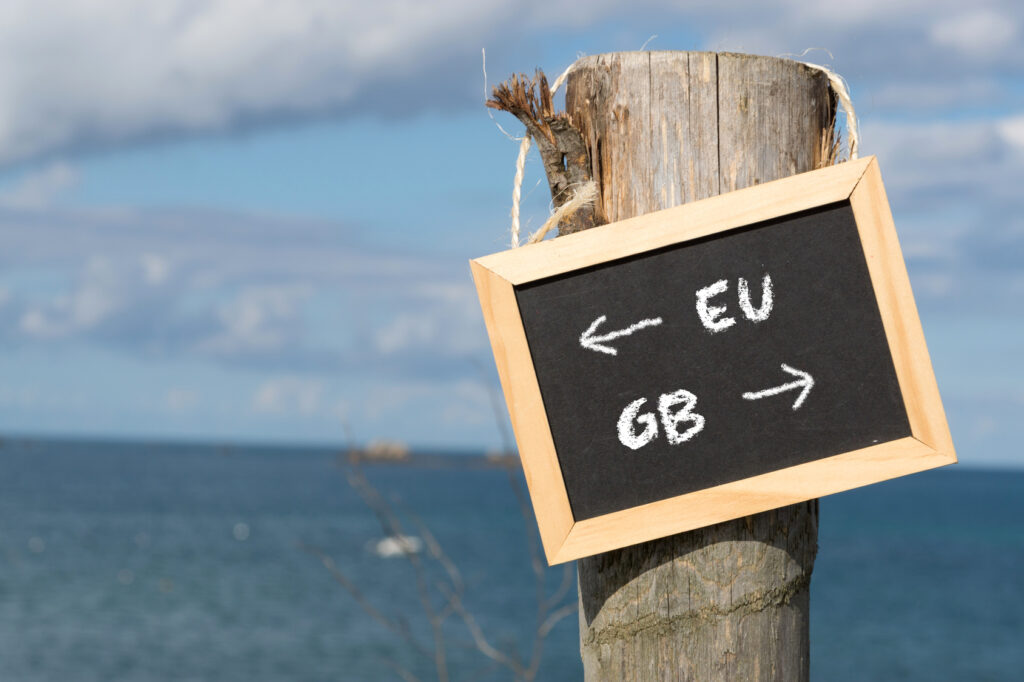 Anxiety among many businesses is high following the vote to leave Europe and the vote to install Donald Trump as the US President. Alex Ogilvie, Managing Director of Seller Dynamics, always has strong views and today explores some of the likely outcomes for online retailers who up till now have been enjoying growth in international sales thanks to the rise of global marketplaces such as Amazon and eBay.
Anxiety among many businesses is high following the vote to leave Europe and the vote to install Donald Trump as the US President. Alex Ogilvie, Managing Director of Seller Dynamics, always has strong views and today explores some of the likely outcomes for online retailers who up till now have been enjoying growth in international sales thanks to the rise of global marketplaces such as Amazon and eBay.
The future of marketplaces
In May of this year Donald Trump made it clear that he is no fan of Jeff Bezos – the Amazon CEO.
“…he (Jeff Bezos) thinks I would go after him for antitrust because he’s got a huge antitrust problem. Amazon is controlling so much of what they’re doing … What he’s got is a monopoly and he wants to make sure I don’t get in.”
The comment followed an ongoing series of attacks by Trump on the company, no doubt fuelled by the anti-Trump/pro-Clinton position that the Bezos owned Washington Post had taken. Certainly the markets have taken the spat seriously; they dropped the Amazon share price faster than any Amazon marketplace repricer could have done following the Trump victory.
And then there is his view on China, a view that would suggest trade barriers are coming soon. Tech stocks have already been hit, failing to recover even after the initial surprise of the Trump win faded.
Alibaba, listed in the US, have also seen a weakening in market support, despite this being an organisation that celebrated that most Chinese of inventions, Chinese Singles Day (11/11), with sales of $1Billion in just 5 minutes.
So what of the retail trade world in the post Brexit, post Obama epoch, and what of the online retail marketplace world in particular.
Well let’s look at the current state of affairs, Amazon is growing at around 30% per annum, 50% of its sales are from third party sellers and its Prime offering is growing fast. eBay thrives, after its own PayPalExit, with annual sales approaching £80Bn, supported by 165 million active buyers.
But how will marketplaces fair if the world does become a less open and more isolationist trading environment? Well here is a prediction which I will allow you to throw back at me when it proves to be as wrong as a Pollster predicting an election or referendum result.
“Marketplaces will continue to get bigger exactly because of the breakdown in trade agreements.”
And here is why:
We have already seen that eBay’s Global Shipping Program is designed to open up Cross Border Trade. They deal with all the hassle; they ensure that the recipient gets the goods they want and that they pay the import duty due. The retailer doesn’t have to worry, life is simple, other than pick up the costs for the service supplied it’s a straightforward transaction. And Amazon has just introduced the same offering, making Cross Border Trade easier for its sellers.
So if our current trade agreements change and move under our very feet, it would seem fair to assume that the global marketplaces will step in to handle the complexities. They’ll have to if they want to continue to grow. That change from being marketplace organisations where previously VAT, duty and taxes have been an irritation, to organisations where the management of those burdens is seen as a sales opportunity, will make them all the more appealing to sellers and buyers alike.
I’d also venture that they are the best organisations to fight the cause of the retailer in the new age we are entering. They have interests directly aligned with retailers, and they have colossal power in economic terms, as lobbyists for the retail industry when it comes to Cross Border Trade they are in a unique position. And yes lobbying is a dirty word, but so is political campaigning as we have just witnessed.
Politicians and government cannot ignore Amazon, eBay, Alibaba and the myriads of other global marketplaces – they have a massive retail voice in each of the countries they operate in. Take Amazon with their 49,000 sellers in the UK and 185,000 sellers in the USA – that is a powerful lobby group. While retailers will no doubt complain (understandably) about the practices of the marketplaces they sell on from time to time, they remain the easiest and most cost effective way to find a global audience that buys goods in volume.
We are already seeing government agencies in the UK recognise the benefits of the global marketplaces, the UK’s Department for International Trade are strong advocates and have been so for some time. I don’t see that changing in the new world, if anything marketplaces are a simple answer to the emerging set of complex issues and government may well be seeing marketplaces as new latter day trade winds. If you’re not convinced, then look to HMRCs policy on marketplace sellers from overseas who are avoiding VAT, they’re holding the marketplace owner ultimately responsible for those evasions, a definitive measure to protect local retailers and which conveniently generates taxes of course. Their actions ensure that the marketplace world is an even playing field, at least from a taxation point of view.
Would retail life be simpler without Brexit and without Trump’s views on global trade? Of course it would. Will Trump push for an anti-trust case against Amazon? Perhaps, but that might just see Amazon broken up into its constituent elements, which is hardly a problem given the diverse nature of the business. Will Chinese trade barriers go up? That seems possible, but with China contributing more to the global economy than the US, don’t expect that to be as widespread as some would fear.
Despite the changing world, and maybe even because of it, global marketplaces are set to come up Trumps.










6 Responses
A great article, Alex, and one which has renewed my battered optimism.. Globalisation cannot be put back in a box by these insularities – progress will surely defeat regress in the long run.
It depends on what business you are in. If you are selling low cost items under £10 then doubling your postage cost by using eBay’s global shipping programme is simply not a sensible option. On the other hand ….if eBay fixed it’s shopping cart to multi currencey like eBay.de has managed to do then it would have a far greater impact on overseas sales than Brexit or Donald Trump. The global shipping programme costs more than Royal Mail charge. It’s not a free service. I can’t comment on other platforms but this article is not accurate for all business models on eBay.
Pleased I’m not the only one positive about Trump & Brexit – if trade barriers are introduced with China, then perhaps it might eventually lead to more employment for ordinary Americans, which in turn could give them more spending power, and as an English speaking country we might hope to gain from that.
Might not hurt if those ordinary Americans see us as an ally due to a lot of Farage/ Trump media coverage either ?
I would much rather explain to an American why something is delayed or has a problem, rather than a buyer in Germany, China etc who has to rely on an online translation tool.
Hi Sam, opportunities will no doubt arise as the new trading environment becomes clearer – lets hope the opportunties are bountiful. At the moment I’m trying hard not to be pro or against any of the recent changes, I guess I’m just trying to figure it out.